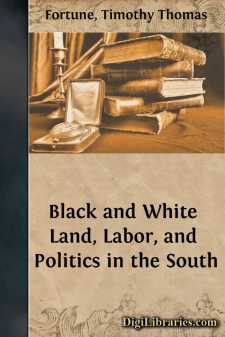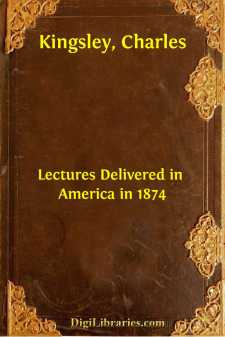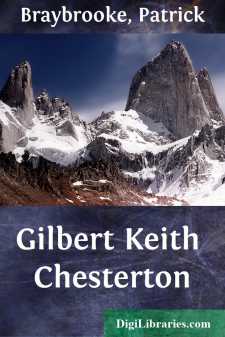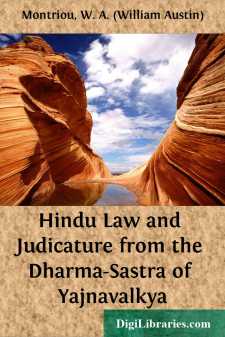Non-Classifiable
- Non-Classifiable 1768
Non-Classifiable Books
Sort by:
CHAPTER I Black There is no question to-day in American politics more unsettled than the negro question; nor has there been a time since the adoption of the Federal Constitution when this question has not, in one shape or another, been a disturbing element, a deep-rooted cancer, upon the body of our society, frequently occupying public attention to the exclusion of all other questions. It appears to...
more...
This is the old gentleman who used to walk in front of steam-driven carriages on the King's highway. He carried in his hand a red flag which he waved. This is the traction-engine which always came behind the old gentleman, and made such a dreadful noise. If the roads were good it could travel four miles in one hour. This is the old gentleman getting out of the way of a motor car. This is a Motor...
more...
The only Socialism of interest to practical persons is the Socialism of the organized Socialist movement. Yet the public cannot be expected to believe what an organization says about its own character or aims. It is to be rightly understood only through its acts. Fortunately the Socialists' acts are articulate; every party decision of practical importance has been reached after long and earnest...
more...
by:
Charles Kingsley
LECTURE I.WESTMINSTER ABBEY. Reverence for age, at least so it has long seemed to me, reverence for age, I say, is a fair test of the vigour of youth; and, conversely, insolence toward the old and the past, whether in individuals or in nations, is a sign rather of weakness than of strength. And the cause, I think, is this. The rich and strong young natures, which feel themselves capable of original...
more...
by:
Richard Whately
HISTORIC DOUBTSRELATIVE TONAPOLEON BUONAPARTE. Long as the public attention has been occupied by the extraordinary personage from whose ambition we are supposed to have so narrowly escaped, the subject seems to have lost scarcely anything of its interest. We are still occupied in recounting the exploits, discussing the character, inquiring into the present situation, and even conjecturing as to the...
more...
by:
Robert Boyle
CHAP. I. 1have seen you so passionately addicted, Pyrophilus to the delightful Art of Limning and Painting, that I cannot but think my self obliged to acquaint you with some of those things that have occurred to mee concerning the changes of Colours. And I may expect that I shall as well serve the Virtuosi in general, as gratifie you in particular, by furnishing a person, who, I hope, will both improve...
more...
Preface It is certain that up to a point in the evolution of Self most people find life quite exciting and thrilling. But when middle age arrives, often prematurely, they forget the thrill and excitements; they become obsessed by certain other lesser things that are deficient in any kind of Cosmic Vitality. The thrill goes out of life: a light dies down and flickers fitfully; existence goes on at a low...
more...
I. On Girls "A Pearl, A Girl."-Browning There are of course, girls and girls; yet at heart they are pretty much alike. In age, naturally, they differ wildly. But this is a thorny subject. Suffice it to say that all men love all girls-the maid of sweet sixteen equally with the maid of untold age. * * * There is something exasperatingly something-or-otherish about girls. And they know it—which...
more...
Of the above list, twenty (distinguished by one cross) are in Yájnavalkya's list: seventeen of these are named by ParáÃ
âºara, viz. all except Yama, Brihaspati and Vyása, instead of whom he gives KaÃ
âºyapa, Gárgya and Prachetas: the Padma Puráá¹â¡a gives those named by Yájnavalkya, with the exception of Atri, and seventeen others, (distinguished by two crosses) three...
more...
THE STOLEN TREASURE There is a certain little girl who sometimes tries to find out when I am not over busy, so that she may ask me to tell her a story. She is kind enough to say that she likes my stories, and this so flatters my vanity that I like nothing better than telling them to her. One reason why she likes them, I suspect, is that they are not really my stories at all, the most of them. They are...
more...











